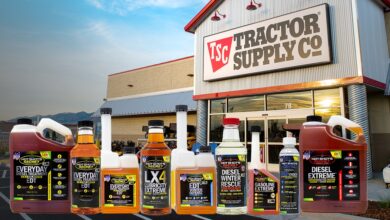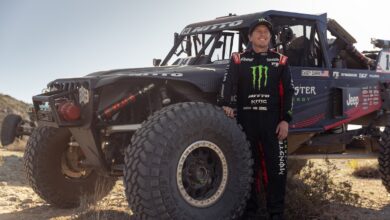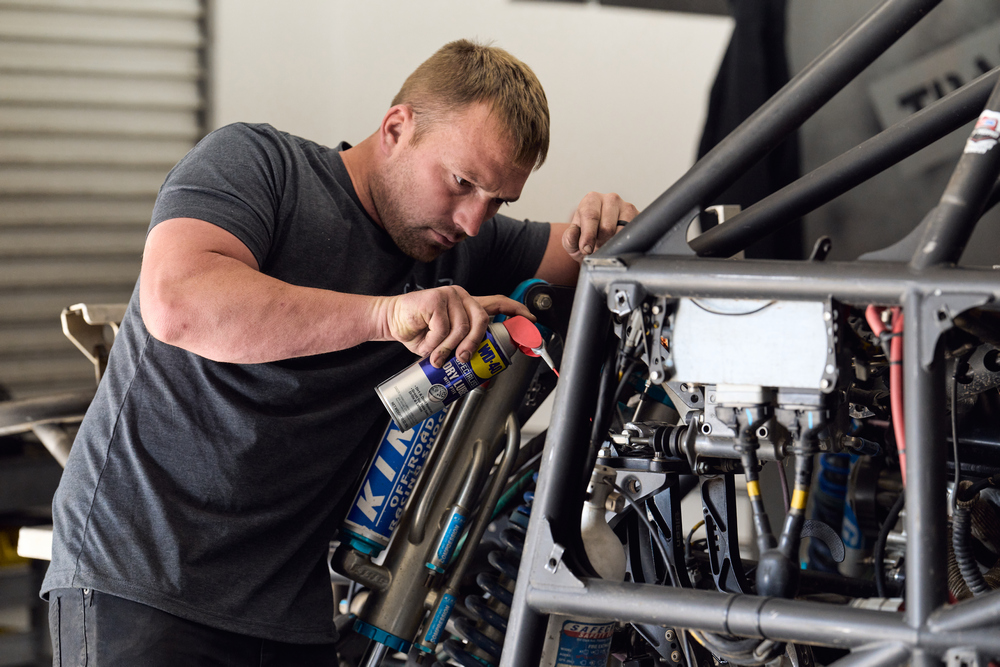
This article originally appeared in the September 2023 issue of THE SHOP magazine.
Stuck on a project? There’s a spray lubricant that can help.
A staple of any shop shelf, today’s lubricants are more effective, more versatile and more targeted than ever. Use them to break free stuck fasteners, protect metals and resist rust.
While not always top of mind, spray lubricants remain an unsung hero for technicians looking to get jobs done efficiently. Manufacturers offer an update on what’s happening in the market and how installers can use them for maximum benefit.
WORTH NOTING
Spray lubricants may seem to be straightforward products, and in most cases they are. But that doesn’t mean there haven’t been notable innovations along the way.
“The spray lubricant market has witnessed advancements in formulations, delivery systems, packaging, and environmental and safety considerations,” says Erin Bala, senior brand and innovation director for WD-40 Brand. “As the market advances, WD-40 Brand has learned that its end users are looking for specialized formulas to meet specific needs.”
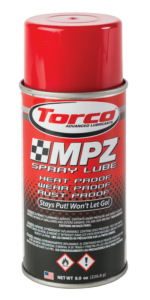
In response, Bala notes, the company created its WD-40 Specialist Line, a complete offering of lubricants, penetrants, rust-management solutions, cleaners and degreasers—including Specialist Gel Lube, an advanced solution that uses the brand’s formula with a chemical technology built in to allow the formula to thicken once applied to a surface, as well as a Specialist Degreaser and Cleaner EZ-Pods.
Sergio Diaz, founder of Gear Hugger, says professional and household users are also more aware of the ingredients found in the products they choose.
“Over the last 10 years, the spray lubricants market has undergone remarkable changes, mainly due to technological advancements, environmental concerns and changing consumer preferences,” he reveals.
When developing his plant-based, biodegradable, all-purpose lubricant, Diaz looked at these factors:
- Eco-Friendly Formulation. “One of the biggest trends in the spray lubricant market is the growing demand for sustainable and eco-friendly products. As environmental awareness grows, consumers and industries have sought out lubricants that are biodegradable, plant-based and free of harmful chemicals.”
- Performance Improvements. “The past decade has seen significant advances in lubrication technology, resulting in improved performance characteristics. Spray lubricants now provide improved performance and can reduce friction and extend the life of automotive parts and machinery.”
- Smart Packaging & Application. “Advances in packaging methods and applications have made aerosol lubricants more user-friendly and effective—improvements like sprayers with adjustable nozzles, precision nozzles or others for wide sprays.”
- Focus on Safety & Health. “Health and safety concerns have become paramount. Manufacturers have gone to great lengths to develop formulations that have low toxicity and are non-flammable and non-carcinogenic, ensuring user safety and reducing environmental impact.”
- Market Expansion. “The aerosol lubricants market has experienced tremendous growth and expansion. With the increase in industrialization and automobile sales in many parts of the world, the demand for lubricating products has increased significantly.”
- Accessibility. Online retail and eCommerce platforms have opened up new distribution channels, making it easier for users to find and purchase their favorite lubricants.
Customer needs continue to drive advancements in the spray lubricants market, says Shawn Swavely, senior marketing manager for AMSOIL.
“The pandemic hurt the supply chain, meaning there are fewer product offerings with unique solutions,” he says. “We do not use the ‘one-size-works-OK’ approach. We look at the needs of the market and then formulate a product for the best fit.”
Ernie Soliz, sales director for Torco International Corp., has watched as industry innovation has formed a specialized lubrication category.
“There are two aerosol lubricant markets—the ‘me-too’ common aerosol lubricants that are well-stocked at most stores, and then the specialty aerosol lubricants market. Two different worlds,” he says. “Do most work well enough for common uses? Yes, and they are inexpensive. But then there are true specialty blends that require a well-thought-out formula. Torco has always addressed more specialized applications where we need the product to work exceptionally well. The only thing that has really changed is that we cannot use various aerosol propellants and components that we used 15 years ago.”
STOCK THOSE SHELVES
When the need for a spray lubricant arises, technicians may be in the habit of simply reaching for the nearest can. Bala notes, however, that there are different products designed for different missions.
“A common misconception is that spray lubricants are a one-size-fits-all solution,” she says. “Rather, choosing the right lubricant for the job will make the lubrication process more effective.”
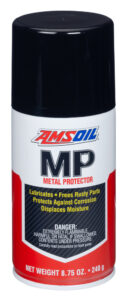
Bala’s examples include:
- “When dealing with jobs that require heavy lubrication, it is recommended to use high-viscosity lubricants like WD-40 Specialist Gel Lube or WD-40 Specialist White Lithium Grease. These products create a protective barrier that offers long-lasting corrosion protection, ensuring the durability of surfaces even during prolonged exposure to the elements.
- “For woodworking, carpentry and metalwork, it is best to use a dry lubricant such as WD-40 Specialist Dry Lube. This type of lubricant prevents the accumulation of dirt on the applied surface, keeping it clean and smooth.
- “When faced with stubborn or rusted parts, a thinner, low-viscosity lubricant like WD-40 Specialist Penetrant is typically the most effective choice. This fast-acting penetrant works on contact to free rusted nuts, bolts, threads, locks and chains, leaving behind a protective layer that prevents rust and corrosion from reforming.”
AMSOIL’s Swavely agrees that shops should have specialized lubricants available for specific tasks.
“A common misconception is that all the products are basically the same, since they are designed to do the same job,” he says. “All metal protectors are not created equal.”
Soliz says such thinking will lead technicians to the wrong solutions.
“I hear it all the time—that assembly sprays, silicone sprays, penetrating sprays, etc. are all the same. Not true.”
Diaz explains that today’s plant-based offerings are useful choices.
“Derived from renewable resources such as soy oil, cacao butter and canola oil, and other plant-based materials, they are biodegradable, non-toxic and have lower environmental impacts,” he says. “While it is true that some early formulations of plant-based lubricants may have had limitations in terms of performance or stability, significant advancements have been made in recent years.”
PREMIER PARTNERSHIPS
Spray lubricant brands tend to be high-profile players in their respective markets. As a result, they are often involved in special projects and partnerships showcasing the power of participation.
For instance, Diaz outlines how Gear Hugger and O’Reilly Auto Parts have worked together to highlight the impact of spray lubricants on the specialty automotive aftermarket.
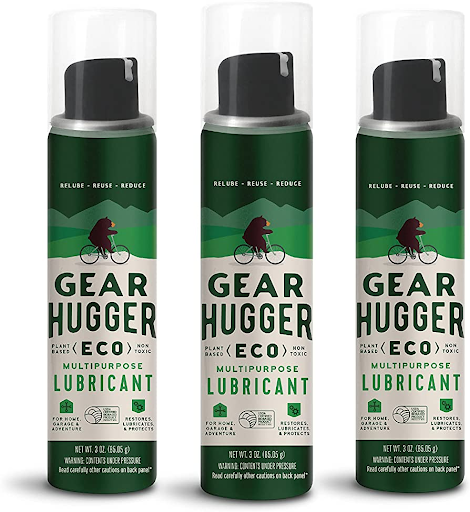
“Gear Hugger offers an environmentally friendly solution, versatile functionality, enhanced performance, easy application and customer support,” he says. “This partnership emphasizes the importance of using quality lubricants for improved automotive maintenance and sustainability.”
Soliz outlines his company’s private label program.
“We have provided private branded Torco Spray Lube for many different manufacturers over the years. We sell it to high-end specialty equipment manufacturers for their production lines,” he explains. “I’ve always said Torco Spray Lube complements the products that those manufacturers are building and selling—there’s no other reason why they would purchase it.”
Bala explains how WD-40 Brand supports those who make an impact in the industry.
“One of the ways we do this is by empowering and educating the next generation of technicians through partnerships with organizations including Universal Technical Institute and the Automotive Service Excellence (ASE) Education Foundation,” she explains. “Through these partnerships, we offer online and in-person learning experiences as well as sampling, with the goal of sharing knowledge on the science of lubrication and providing technical applications that can improve efficiency for those working in the skilled trades.”
The company has also collaborated with partners including T.R.A.D. (Team Racing and Development) on projects including a desert racing chase truck that will debut at the 2023 SEMA Show.

